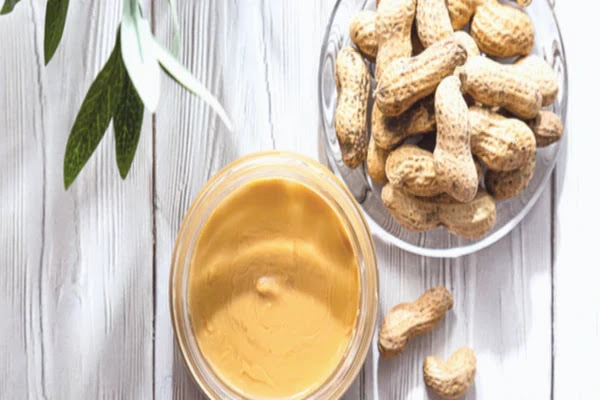Featured
- Get link
- X
- Other Apps
Strengthening the Immune System through Nutrition & Lifestyle

A robust immune system is vital for protecting the body against infections and illnesses. While some aspects of immune function are beyond our control, there are numerous ways to support and strengthen the immune system through nutrition and lifestyle choices. In this article, we will explore tips for boosting immune health to promote overall well-being.
Understanding the Immune System
The immune system is a complex network of cells, tissues,
and organs that work together to defend the body against harmful invaders, such
as bacteria, viruses, and fungi. A healthy immune system can recognize and
destroy these pathogens while also maintaining a balance to avoid overreacting
to harmless substances.
Tips for Strengthening the Immune System
- Balanced
Diet: A nutritious diet is a cornerstone of immune system support. Key
nutrients, including vitamins, minerals, and antioxidants, play crucial
roles in immune function. A diet rich in fruits, vegetables, whole grains,
lean proteins, and healthy fats provides the necessary nutrients for a
well-functioning immune system.
- Vitamins
and Minerals: Specific nutrients are particularly important for immune
health:
- Vitamin
C: Found in citrus fruits, berries, and vegetables, vitamin C helps
boost the production of white blood cells.
- Vitamin
D: Exposure to sunlight and vitamin D-rich foods like fatty fish and
fortified dairy products can support immune function.
- Vitamin
A: Found in sweet potatoes, carrots, and leafy greens, vitamin A
plays a role in the development of immune cells.
- Zinc:
Zinc, present in foods like meat, nuts, and whole grains, is essential
for the proper functioning of immune cells.
- Selenium:
Selenium-rich foods, such as Brazil nuts, can enhance the body's ability
to fight infections.
- Probiotics:
A healthy gut microbiome is closely linked to strong immune function.
Consuming foods like yogurt, kefir, sauerkraut, and kimchi can promote a
diverse and healthy gut flora.
- Hydration:
Staying well-hydrated is essential for immune health. Water helps
transport nutrients to cells and eliminate waste products.
- Moderate
Alcohol: Excessive alcohol consumption can weaken the immune system.
If you drink alcohol, do so in moderation to support immune function.
- Regular
Exercise: Physical activity boosts the immune system by promoting good
circulation and reducing inflammation. Aim for at least 150 minutes of
moderate-intensity exercise per week.
- Adequate
Sleep: Quality sleep is essential for immune health. Aim for 7-9 hours
of restful sleep each night to support the body's recovery and repair
processes.
- Stress
Management: Chronic stress can weaken the immune system. Practice
relaxation techniques, such as meditation, deep breathing, and yoga, to
reduce stress levels.
- Tobacco
Avoidance: Smoking damages the immune system, making it less effective
at fighting infections. Quitting smoking is one of the most significant
steps for improving immune health.
- Social
Connections: Strong social connections and a supportive network of
friends and family have been linked to better immune function and overall
well-being.
- Hand
Hygiene: Proper handwashing with soap and water can prevent the spread
of infectious agents. Good hygiene practices are essential for avoiding
illness.
- Vaccinations:
Staying up to date with recommended vaccinations can provide critical
protection against specific infections.
- Avoid
Overuse of Antibiotics: Overusing antibiotics can lead to antibiotic
resistance, which poses a threat to the effectiveness of these drugs. Only
take antibiotics when prescribed by a healthcare professional.
- Natural
Immune Boosters: Certain natural remedies, such as echinacea,
elderberry, and garlic, are believed to have immune-boosting properties.
Consult with a healthcare provider before using these supplements.
Immune Health Challenges and Misconceptions
- Dietary
Supplements: While supplements can be beneficial when there are
nutrient deficiencies, it's generally best to obtain essential nutrients
from a well-balanced diet. Always consult with a healthcare provider
before taking supplements.
- Boosting
the Immune System Instantly: Immune support is a long-term effort.
There are no quick fixes to instantly boost the immune system. Consistency
in healthy habits is key.
- Overuse
of Immune Boosters: Overusing supplements, herbs, or vitamins with
purported immune-boosting properties may not necessarily enhance immune
function and can sometimes lead to health risks.
- One-Size-Fits-All Approach: Everyone's immune system is unique. What works for one person may not work for another. It's essential to tailor immune support strategies to individual needs and consult with a healthcare provider when necessary.
Conclusion
Supporting and strengthening the immune system is a lifelong endeavor that requires consistent attention to nutrition and lifestyle choices. A well-balanced diet, regular exercise, adequate sleep, and stress management are foundational elements of immune health. Avoiding harmful habits like smoking and overuse of alcohol is equally important. While there are no magical solutions for instant immune-boosting, adhering to these practices can enhance the body's ability to fend off infections and promote overall well-being. It's important to remember that a healthcare provider can provide personalized guidance and recommendations to address specific health needs. By taking a proactive approach to immune health, individuals can enjoy the benefits of a strong immune system and a healthier life.
- Get link
- X
- Other Apps

